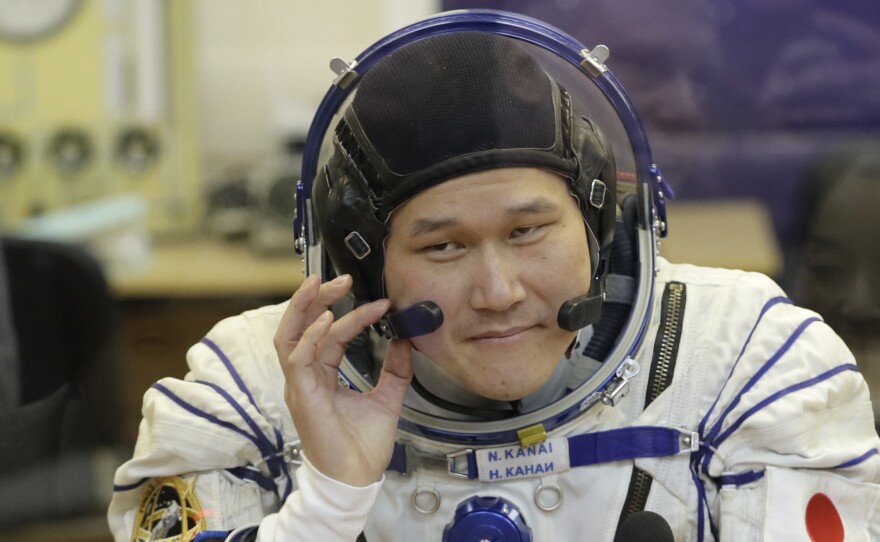An apology for "tweeting out such fake news" didn't come from a media member accused by President Trump, but from a Japanese astronaut whose growth in outer space was miscalculated.
In a tweet on Monday, Norishige Kanai claimed he had grown by as much as 3 1/2 inches since arriving at the International Space Station on Dec. 19.
"I have a major announcement today," Kanai wrote in Japanese, as translated by the BBC. "We had our bodies measured after reaching space, and wow, wow, wow, I had actually grown by as much as 9cm!"
As NASA points out, "It is a commonly known fact that astronauts living aboard the International Space Station grow up to 3 percent taller while living in microgravity." The spine is allowed to stretch with less gravity pushing down on it. Come bedtime, a similar phenomenon happens here on Earth as well. After reclining for sleep, people can grow by a centimeter or 2, then after they get up the vertebrae compress once again.
And when astronauts return to earth, so too do they return to their usual height. But the norm for outer space growth maxes out around 2 inches, NASA says, not 3 1/2.
Kanai, who is also a doctor and on his first space mission, seemed surprised himself, even concerned by the initial measurement. "I grew like some plant in just three weeks. Nothing like this since high school. I'm a bit worried whether I'll fit in the Soyuz seat when I go back," he wrote.
That led to headlines and social media posts fretting over whether Kanai would indeed be able to fold his new frame into the Soyuz spacecraft — a notoriously cramped space — upon his return to earth in June.
But after a Russian colleague expressed doubt about the spurt, Kanai took another look and realized that a "measurement mistake" led to his overstating his growth by nearly 3 inches.
He found he had actually only grown about 3/4 of an inch and was "very sorry" for the mistake.
Kanai said he was a "bit relieved" he will fit into the Soyuz on the way home after all.
But first, Kanai, who is spending his time as a flight engineer aboard the ISS — an Earth-orbiting satellite — as part of the Expedition 54/55 crew is "helping doctors understand how being away from the normal 24-hour sunrise-sunset cycle impacts the human body," says NASA.
Copyright 2018 NPR. To see more, visit http://www.npr.org/.






